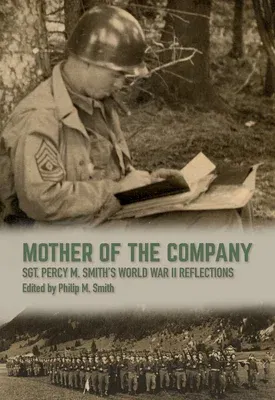The letters of Sgt. Percy Smith, a World War II soldier, and his
memories as an aging veteran reveal how military training, wartime, and
occupation brought out strengths, vulnerabilities, and changing
judgments about fellow soldiers, military leadership, the enemy
population, and home. Capturing the story of a common enlisted man from
embarkation to discharge, the letters and stories in Mother of the
Company: Sgt. Percy M. Smith's World War II Reflections also provide an
intimate window conveying his feelings for his wife, though tempered in
expression as well as subject to censorship. The letters add depth to
the story of this soldier, and they expand the narrative to capture more
of the experience of all veterans who felt at risk and needed comfort
during and after the war.
But these letters provide readers with another, less-expected view into
the heart and mind of this member of the World War II generation. In
contrast with military training, masculine expectations, and the
prejudices of white America at that time, the longer, later memories of
wartime and occupation contain strong instances of comforting and caring
that sometimes turn the gender experience of war and male camaraderie on
its head. In the end, if we ask what constitutes a good soldier, a good
survival, and a worthy life, the answer for Sgt. Percy Smith, as
suggested by his letters, might encompass the greater value of
life-giving and life-fostering instincts as a part of healing the damage
left behind by the life-taking experience of war.

